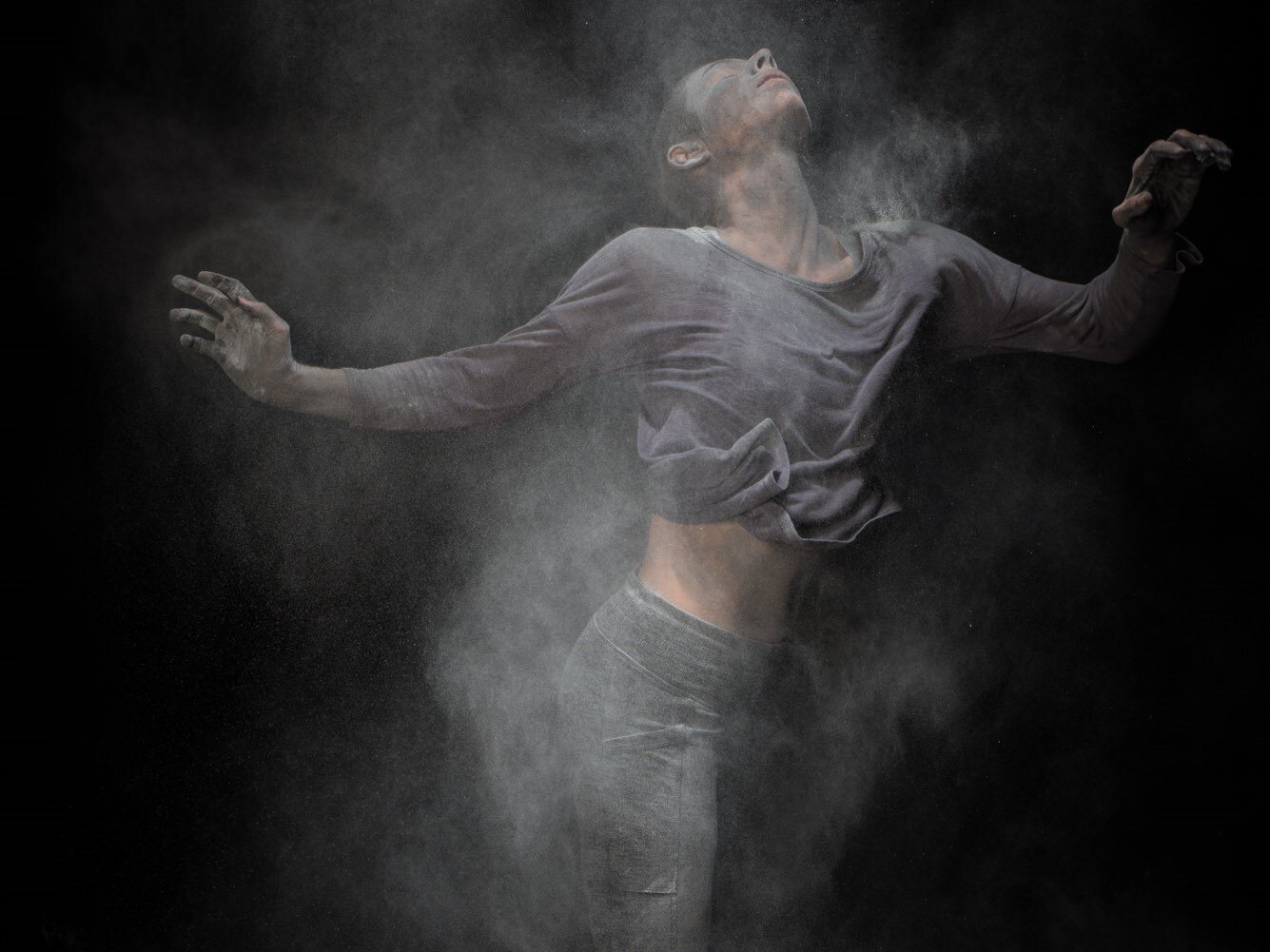
Improvisation is a philosophy of life, albeit not one based on a specific doctrine or system of beliefs. Rather, it is another way of relating to one’s experience—a willingness to explore the realm of possibility, not in order to find the correct solution but simply to find out.
- ann cooper-albright
photo by Slater Mapp
Justin Tornow (MFA) is an transdisciplinary artist, educator, researcher, and Ph.D. candidate at Temple University. Tornow is the founder of the COMPANY arts collective, a project-based group of artists who work with sound, light, film, maps, and movement.
Tornow produces co-creative choreographies, installations, and Happenings. She is the creator and producer of PROMPTS, a community-based artist series that showcases new and in-progress works. Tornow was also a co-founder and co-organizer of Durham Independent Dance Artists (DIDA). Tornow facilitates public workshops and college-level courses in movement forms, dance composition and choreographic process, repertory and performance, and dance history.
Tornow’s current work engages theory, creative practice, and social renewal. She is especially enthusiastic about examining the alignment between how we think and what we do by integrating Pragmatist and process-oriented philosophy; radical democratic practice (Dewey); postwar US avant-garde pedagogy (Cage, Cunningham, Halprin); and critical pedagogies (hooks, Giroux, Biesta) into art and education processes.
I always took for granted that the best art was political and was revolutionary. It doesn’t mean that art has an agenda or a politics to argue; it means the questions being raised were explorations into kinds of anarchy, kinds of change, identifying errors, flaws, vulnerabilities in systems.
— toni morrison
on education

on education
I understand dance as embodied inquiry.
Learning processes generate curiosity to explore and expand possibilities; to create and test theories from and in experience; to inhabit, examine, and experiment.
Performing John Cage’s STEPS, NC State University
To teach in a manner that respects and cares for the souls of our students is essential if we are to provide the necessary conditions where learning can most deeply and intimately begin. As a classroom community, our capacity to generate excitement is deeply affected by our interest in one another, in hearing one another’s voices, in recognizing one another’s presence.
- bell hooks
Performing John Cage’s STEPS, NC State University
The most essential thing in dance discipline is devotion, the steadfast and willing devotion to the labor that makes the classwork not a gymnastic hour and a half, or at the lowest level, a daily drudgery, but a devotion that allows the classroom discipline to be moments of dancing too. And not in any sense the feeling that each class gives an eager opportunity for willful and rhapsodic self-expression, but that each class allows in itself, and further the dancer towards, the synthesis of the physical and spiritual energies.
- merce cunningham
I do not think that a teacher should teach something to the student. I think the teacher should discover what it is that the student knows —and that’s not easy to find out—and then, of course, encourage the student to be courageous with respect to his knowledge, courageous and practical and so forth—in other words, to bring his knowledge to fruition. Don’t you think?
- john cage
- dance composition + choreography -
Undergraduate I, II, III; GRaduate; adf six-week summer intensive and cleveland intensive; Collegiate + Professional workshops; teaching artist in residence
temple university, elon university, unc-greensboro, american dance festival, st mary’s school, nc state university, TanzART Atelier, Germany
- movement forms -
Cunningham technique; postmodern and contemporary release-based forms; improvisation
all levels, undergraduate and graduate; duke university class series; community and professional class; teaching artist in residence
temple university, elon university, unc-greensboro; american dance festival, adf scripp’s studios; nc state university; duke university; tanzart atelier, germany
- repertory + performance -
all levels undergraduate and graduate; guest artist in residence
temple university, elon university, unc-greensboro, st. mary’s school, nc state university
- experimental -
co-lab in repertory / dance production
co-facilitated with Christopher Fleming
unc-greensboro
- dance studies -
first year seminar; dance history; graduate teaching practicum; dance appreciation; creativity in the arts; the performing body
temple university, elon university, unc-greensboro
Knowledge lives in the muscles, not the consciousness.
- john dewey
different frames

dance in different frames
An ongoing practice of small solo dance film experiments that modify the visual and auditory experience of dance:
a danced present with its audio future.
Filmed and edited Feb 24, 2023 in Philadelphia, PA.
Music by Ulla, “foam”
And now, this.
Filmed May 27, 2020 in Durham, North Carolina. Performed, filmed, and edited by Justin Tornow. Original sound score by Ultrabillions. This video was created by invitation of the American Dance Festival with support from The Forest at Duke
for a small hill.
Filmed July 15, 2020 in Todd, NC. Performed and edited by Justin Tornow. Score: "Voiceless Essay" by John Cage, the score to Merce Cunningham's "Points in Space." Track chosen post-production, Spotify shuffle (algorithmic chance operation).
Hejjdkkkkemnwksn.
Filmed in October 2020 in Cashiers, NC. Performed, filmed, and edited by Justin Tornow. Sound by Alexandro Cortini.


